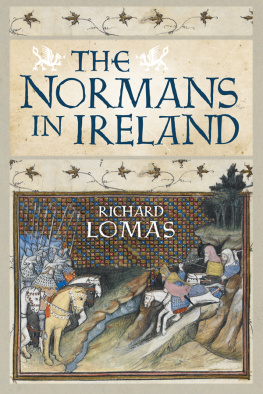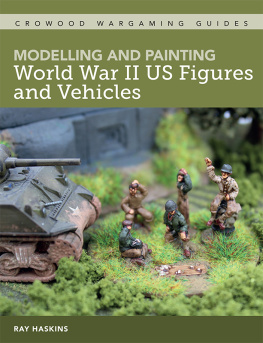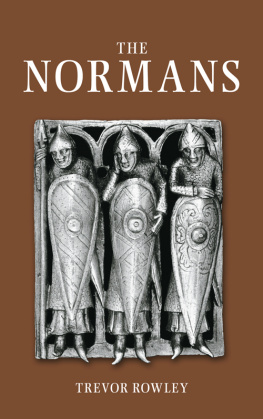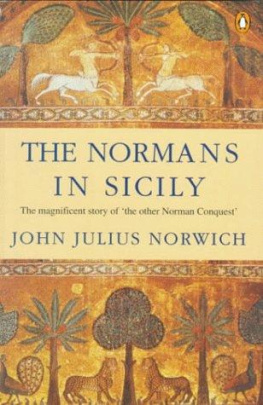THE CENTRAL FACT OF NORMAN history and the starting-point for its study is the event so brilliantly commemorated by the millenary of 1911, the grant of Normandy to Rollo and his northern followers in the year 911. The history of Normandy, of course, began long before that year. The land was there, and likewise in large measure the people, that is to say, probably the greater part of the elements which went to make the population of the country at a later day; and the history of the region can be traced back several centuries. But after all, neither the Celtic civitates nor the Roman province of Lugdunensis Secunda nor the ecclesiastical province of Rouen which took its place nor the northwestern pagi of the Frankish empire were Normandy. They lacked the name that is obvious; they lacked also individuality of character, which is more. They were a part, and not a distinctive part, of something else, whereas later Normandy was a separate entity with a life and a history of its own. And the dividing line must be drawn when the Northmen first established themselves permanently in the land and gave it a new name and a new history.
It must be said that the date 911, like most exact dates in history, is somewhat arbitrary. The Northmen first invaded Normandy in 841, and their inroads did not cease until about 966, so that the year 911 falls near the middle of a century and a quarter of invasion and settlement, and marks neither the beginning nor the end of an epoch. It is also true that this date, like many another which appears in heavy-faced type in our histories, is not known with entire certainty, for some historians have placed in 912 or even later the events commonly assigned to that year. On the whole, however, there is good reason for maintaining 911 and a thousandth anniversary must have some definite date to commemorate!
For the actual occurrences of that year, we have only the account of a romancing historian of a hundred years later, renforced here and there by the exceedingly scanty records of the time. The main fact is clear, namely that the Frankish king, Charles the Simple, granted Rollo as a fief a considerable part, the eastern part, of later Normandy. Apparently Rollo did homage for his fief in feudal fashion by placing his hands between the hands of the king, something, we are told, which neither his father, nor his grandfather, nor his great-grandfather before him had ever done for any man. Legend goes on to relate, however, that Rollo refused to kneel and kiss the kings foot, crying out in his own speech, No, by God! and that the companion to whom he delegated the unwelcome obligation performed it so clumsily that he overturned the king, to the great merriment of the assembled Northmen. Rollo did not receive the whole of the later duchy, but only the region on either side of the Seine which came to be known as Upper Normandy, and it was not till 924 that the Northmen acquired also middle Normandy, or the Bessin, while the west, the Cotentin and the Avranchin, fell to them only in 933.
As to Rollos personality, we have only the evidence of later Norman historians of doubtful authority and the Norse saga of Harold Fairhair. If, as seems likely, their accounts relate to the same person, he was known in the north as Hrolf the Ganger, because he was so huge that no horse could carry him and he must needs gang afoot. A pirate at home, he was driven into exile by the anger of King Harold, whereupon he followed his trade in the Western Isles and in Gaul, and rose to be a great Jarl among his people. The saga makes him a Norwegian, but Danish scholars have sought to prove him a Dane, and more recently the cudgels have been taken up for his Swedish origin. To me the Norwegian theory seems on the whole the most probable, being based on a trustworthy saga and corroborated by other incidental evidence. Yet, however significant of Rollos importance it may be that three great countries should each claim him as its own, like the seven cities that strove for the honor of Homers birthplace, the question of his nationality is historically of subordinate interest, and at a time when national lines were not yet drawn, it is futile to fit the inadequate evidence into one or another theory. The important fact is that Norway, Denmark, and even more distant Sweden, all contributed to the colonists who settled in Normandy under Rollo and his successors, and the achievements of the Normans thus become the common heritage of the Scandinavian race.
The colonization of Normandy was, of course, only a small part of the work of this heroic age of Scandinavian expansion. The great emigration from the North in the ninth and tenth centuries has been explained in part by the growth of centralized government and the consequent departure of the independent, the turbulent, and the untamed for new fields of adventure; but its chief cause was doubtless that which lies back of colonizing movements in all ages, the growth of population and the need of more room. Five centuries earlier this land-hunger had pushed the Germanic tribes across the Rhine and Danube and produced the great wandering of the peoples which destroyed the Roman empire; and the Viking raids were simply a later aspect of this same Vlkerwanderung, retarded by the outlying position of the Scandinavian lands and by the greater difficulty of migration by sea. For, unlike the Goths who swept across the map of Europe in vast curves of marching men, or the Franks who moved forward by slow stages of gradual settlement in their occupation of Roman Gaul, the Scandinavian invaders were men of the sea and migrated in ships. The deep fjords of Norway and the indented coast of the North Sea and the Baltic made them perforce sailors and fishermen and taught them the mastery of the wider ocean. In their dragon ships shallow, clinker-built, half-decked craft, pointed at either end, low in the middle, where the gunwale was protected by a row of shields they could cross the sea, explore creeks and inlets, and follow the course of rivers far above their mouth. The greater ships might reach the length of seventy-five feet and carry as many as one hundred and twenty men, but these were the largest, and even these offered but a slow means of migration. We must think of the whole movement at first as one of small and scattered bands, terrible more for their fierce, sudden, and skilful methods of attack, than for force of superior numbers or organization. The truth is that sea-power, whose strategic significance in modern warfare Admiral Mahan did so much to make us appreciate, was in the ninth and tenth centuries, so far as western Europe was concerned, a Scandinavian monopoly. Masters of the seas, the Northmen harried the coasts and river-valleys as they would, and there was none to drive them back.
Outside of the Baltic, where the Danes ravaged the southern coast and the Swedes moved eastward to lay the foundations of the Russian state and to penetrate as far as Constantinople, two main routes lay open to the masters of the northern seas. One led west to the Orkneys, the Shetlands, and the coast of Scotland, and then either south to the shores of Ireland, or further west to Iceland, Greenland, and America. The other led through the North Sea to England, the Low Countries, and the coast of Gaul. Both were used, and used freely, by the Vikings, and in both directions they accomplished enduring results: Iceland and the kingdoms of the isles in the north, the beginnings of town life and commerce in Ireland, the Danelaw in England, and the duchy of Normandy.









